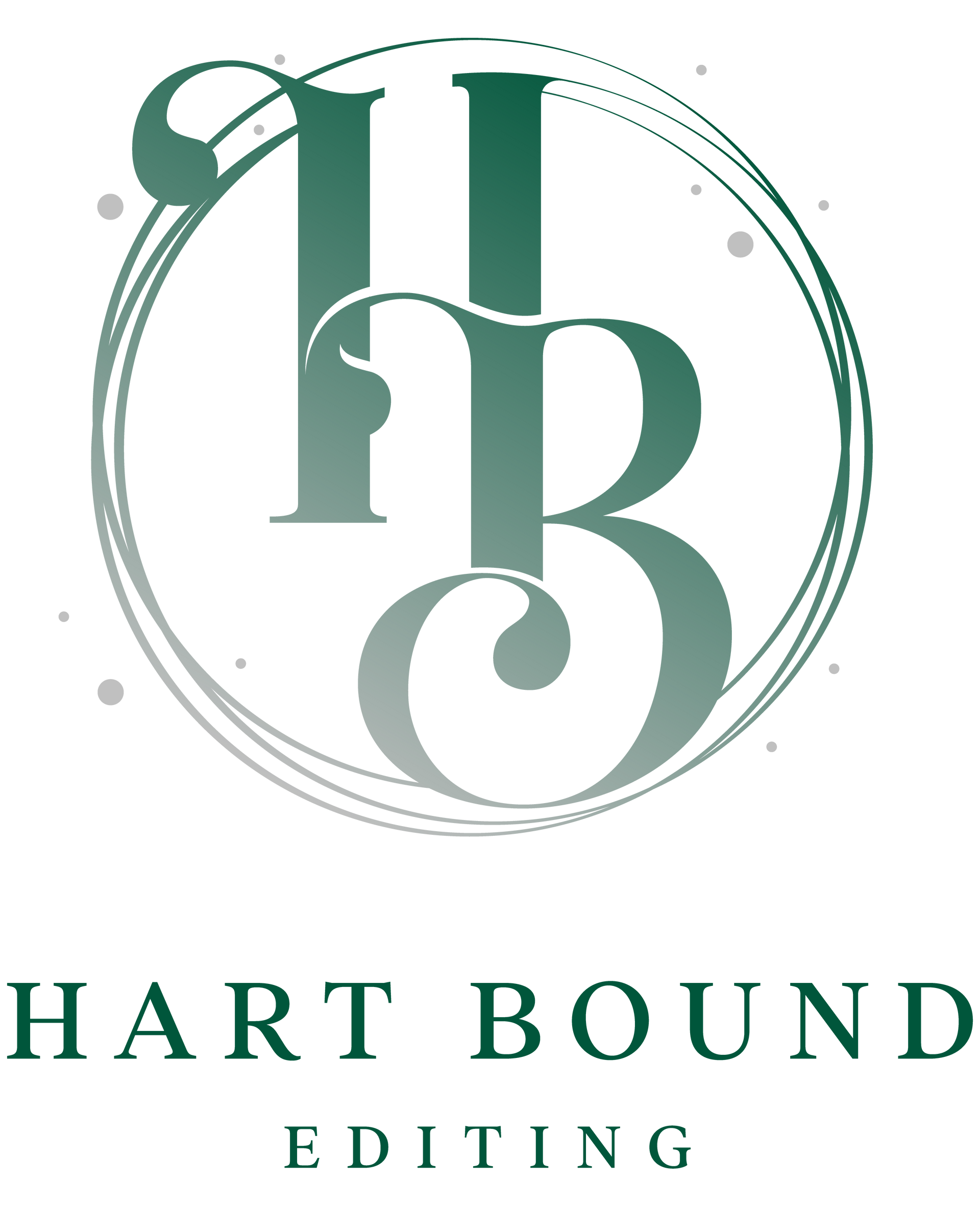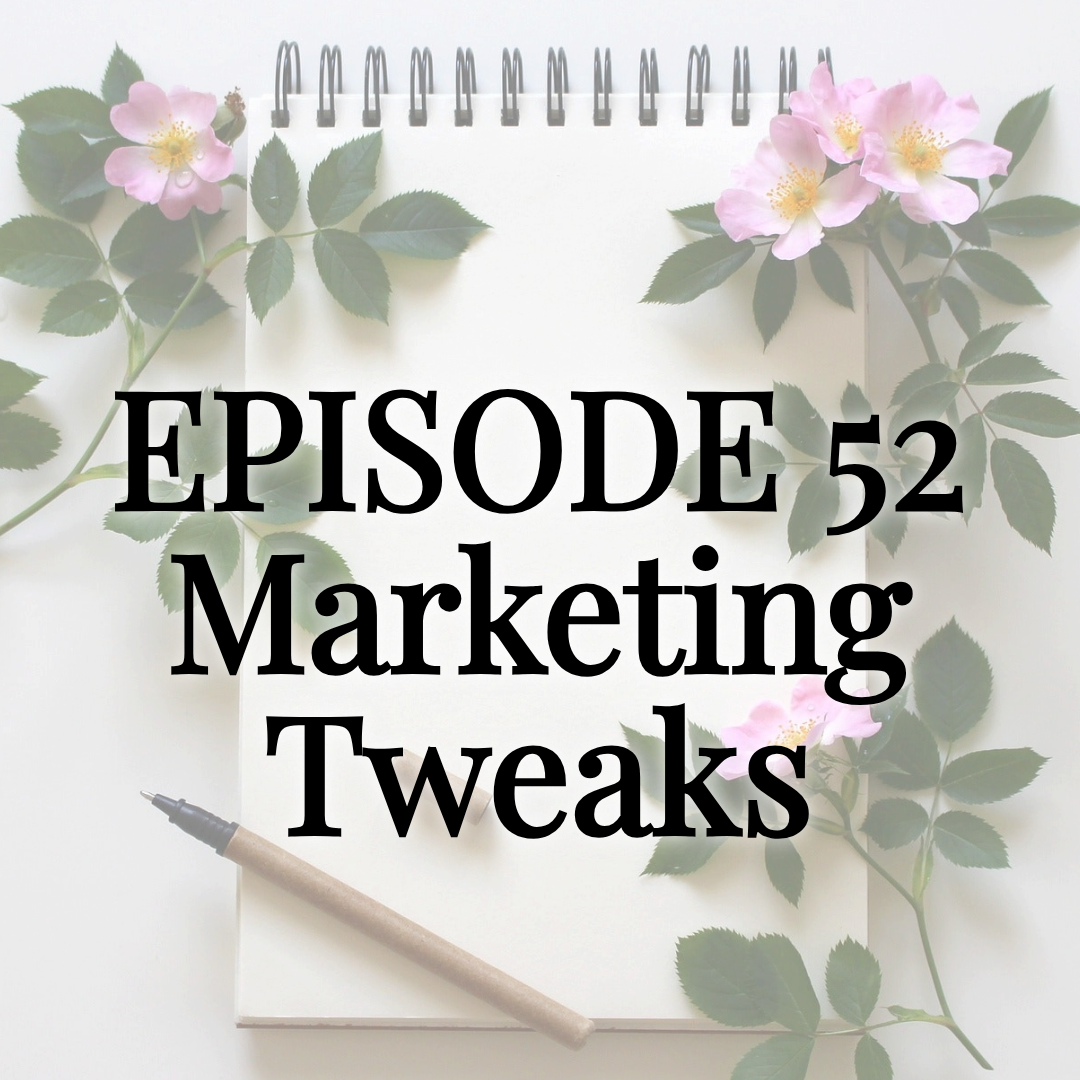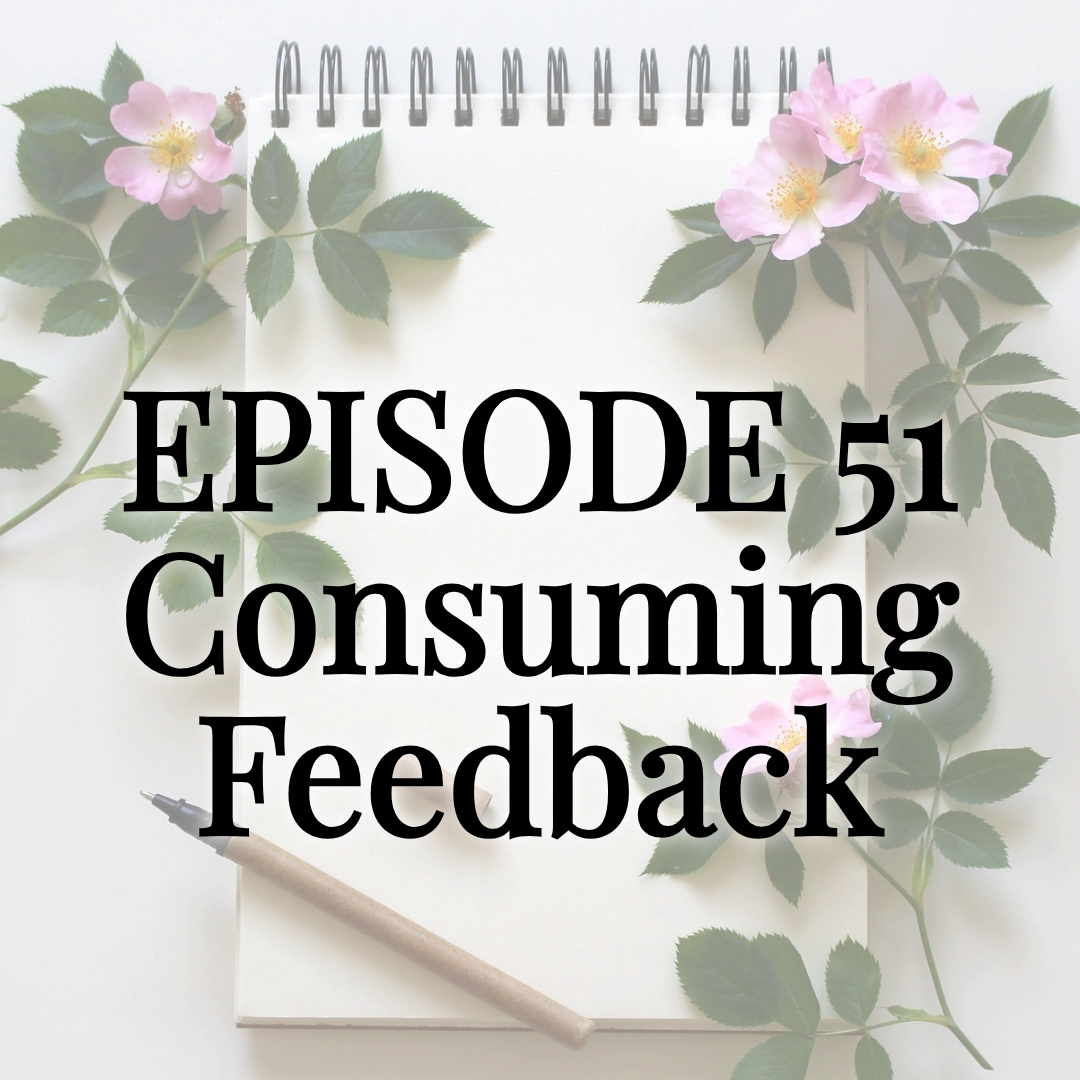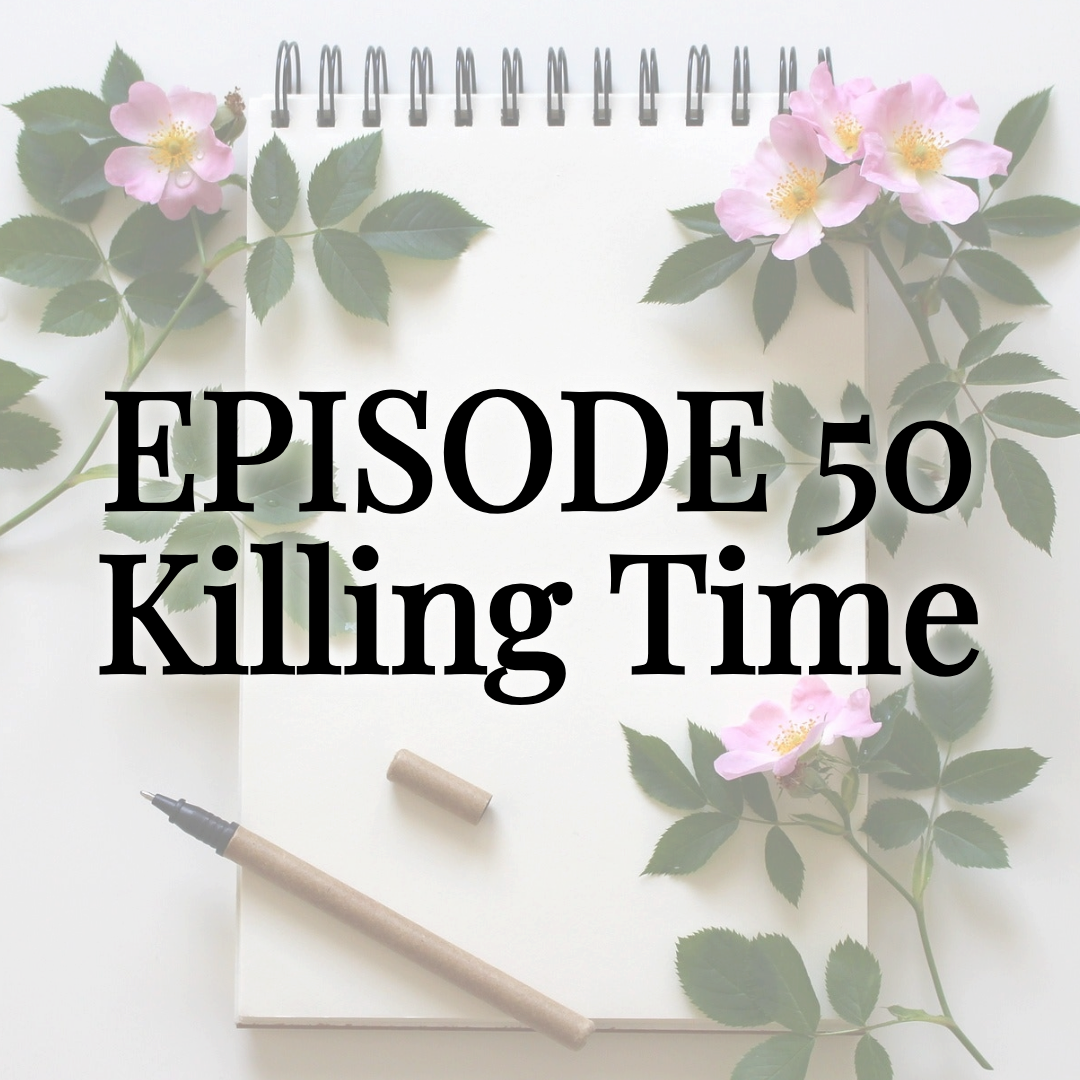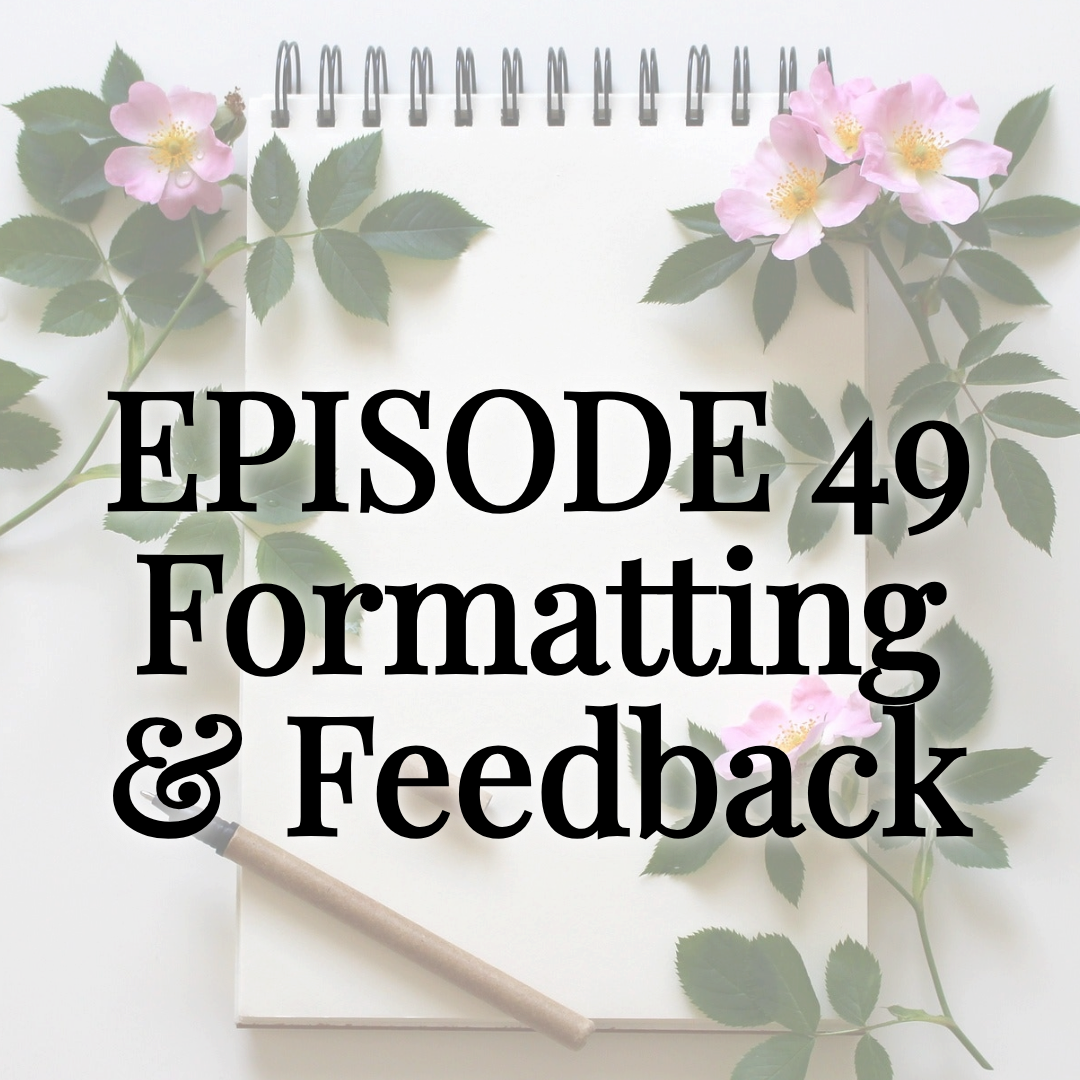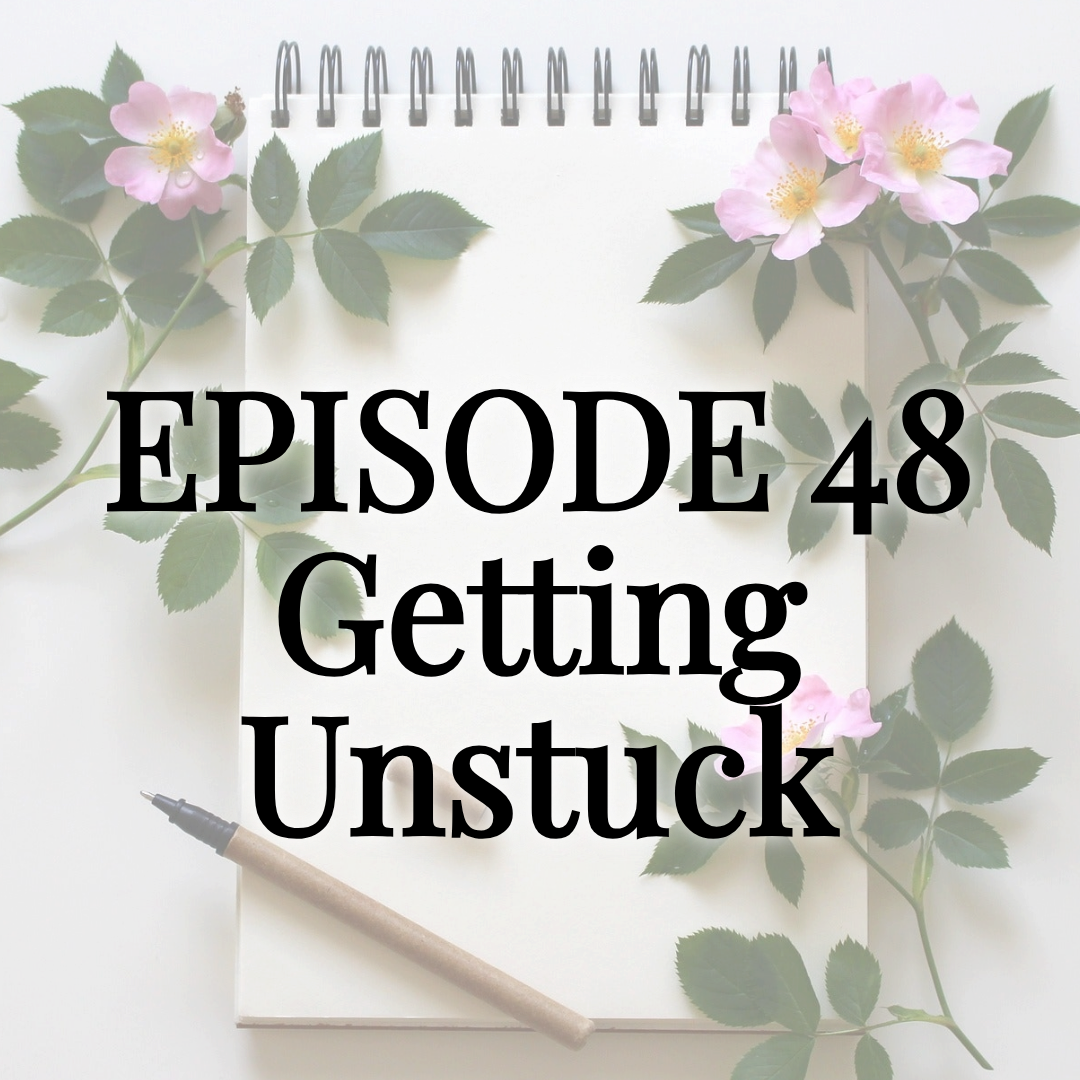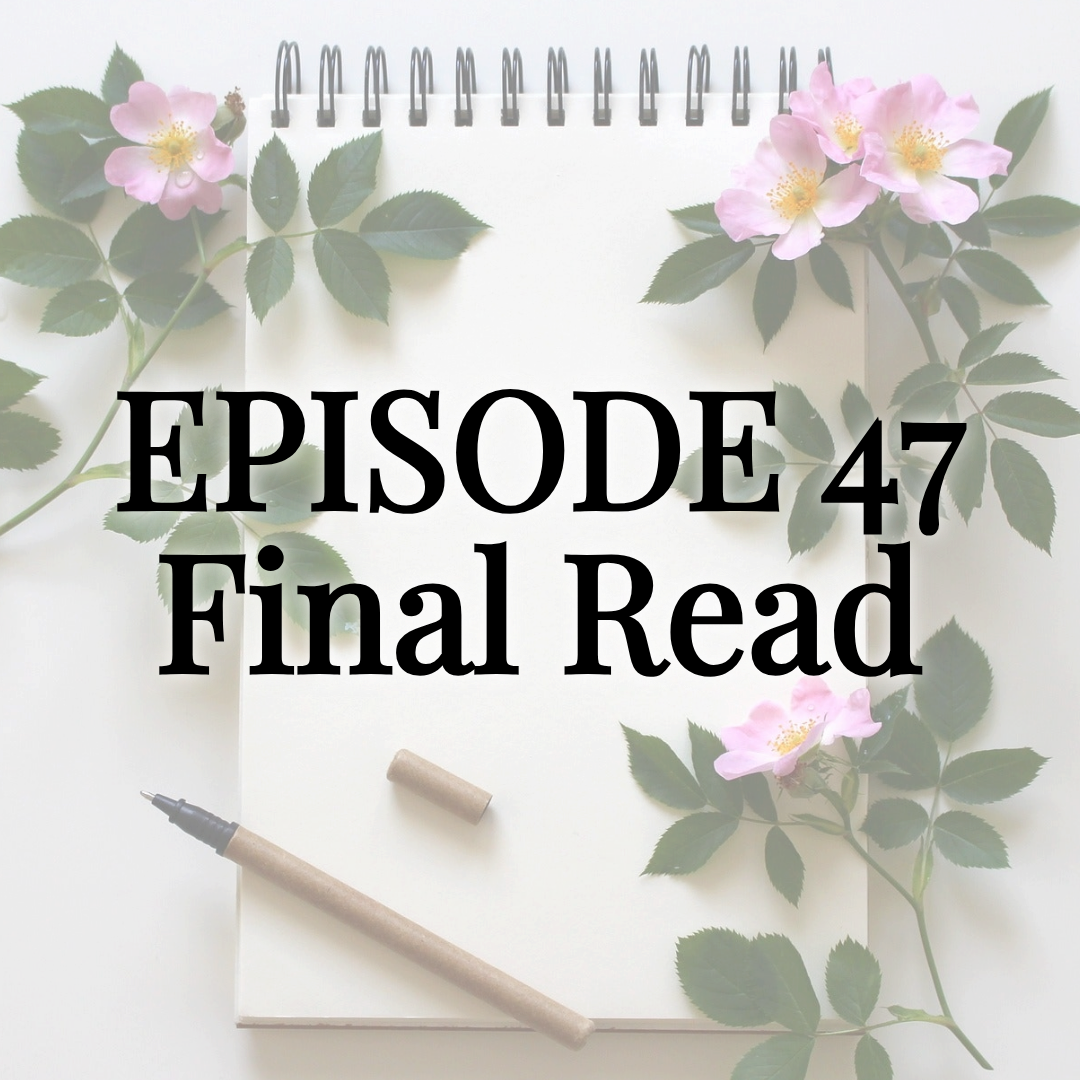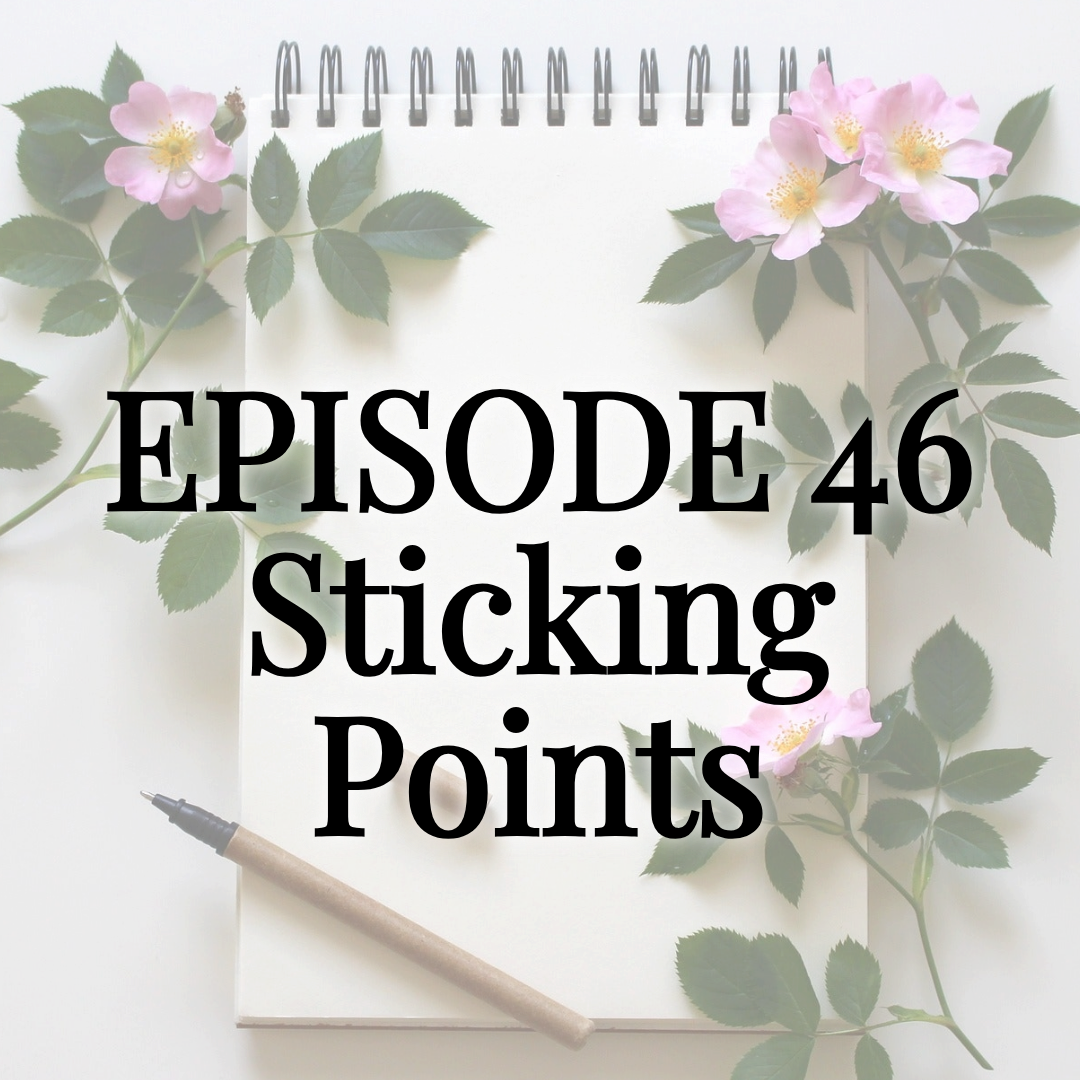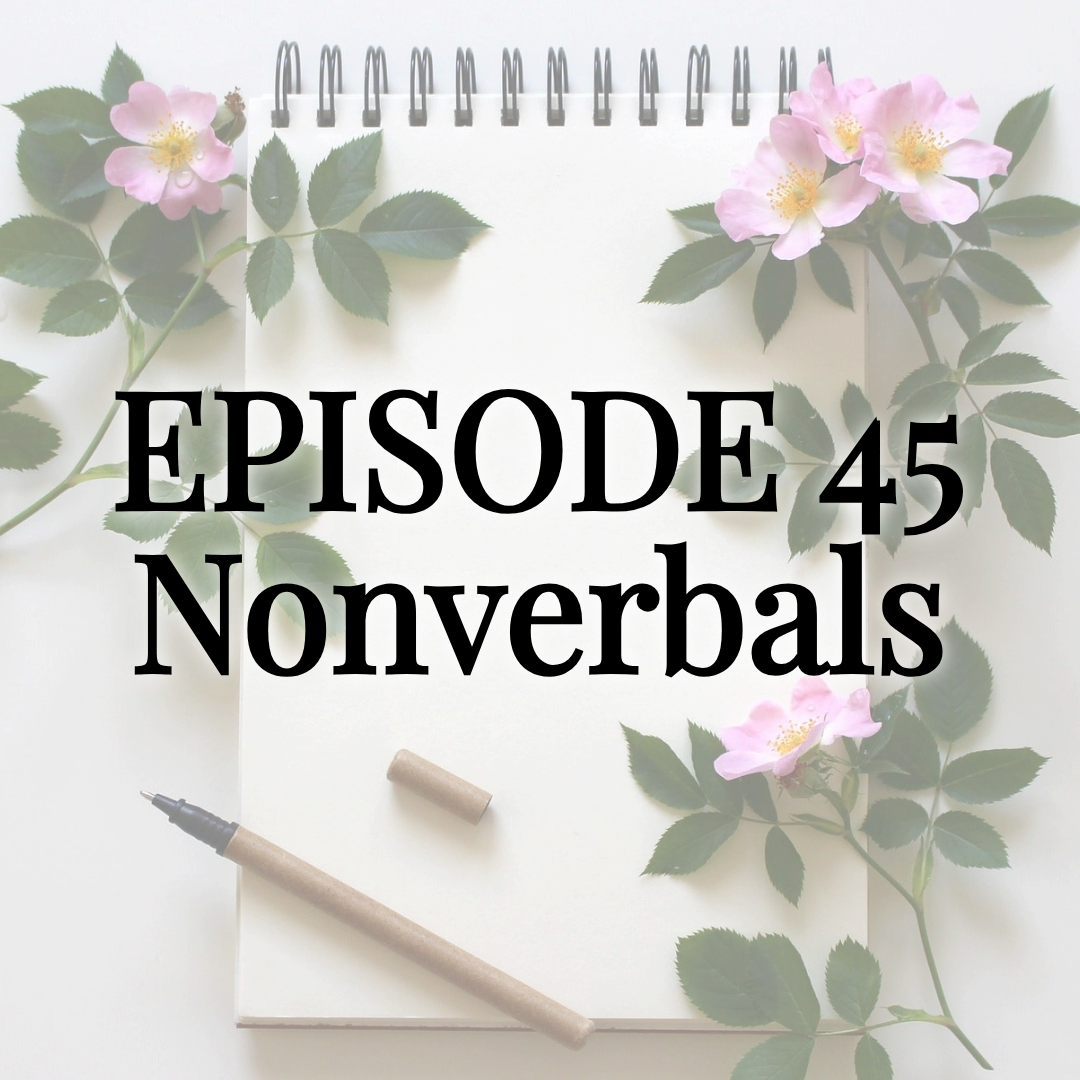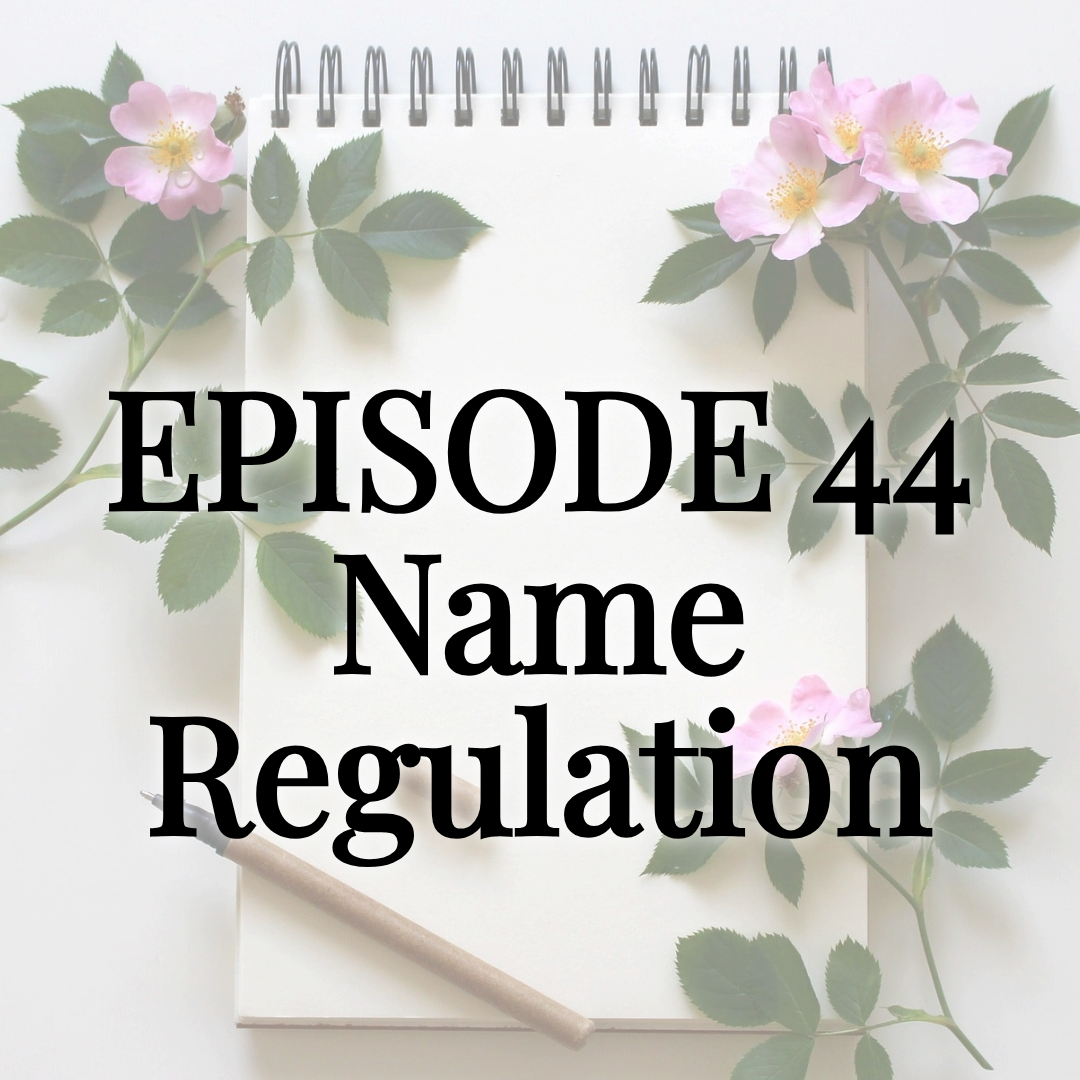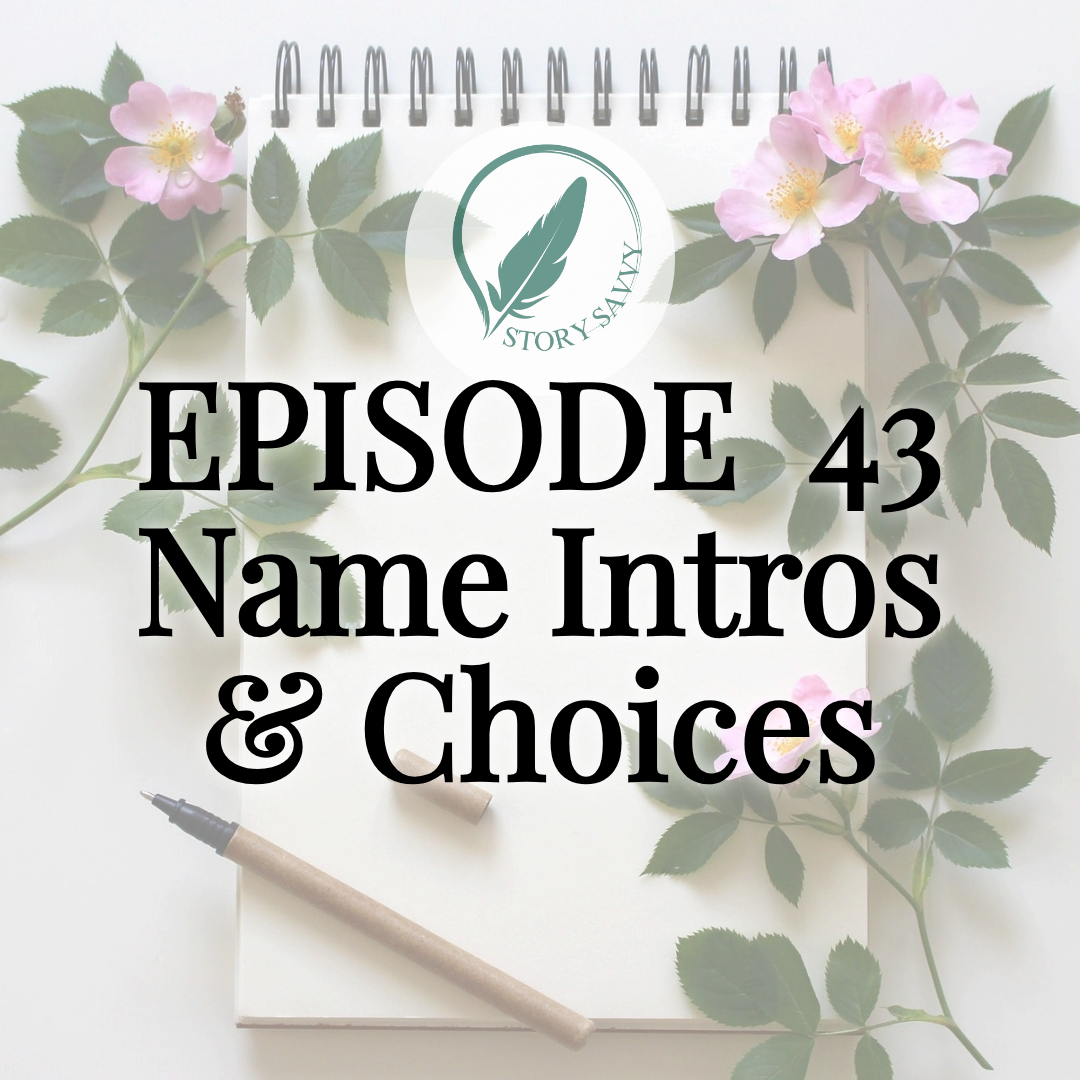Starting With Target Audience: Story Savvy Self-Editing Episode 1
Something new!
Check out the overview, transcript, and some after-episode thoughts from the first installment of the
Story Savvy Self-Editing Series!
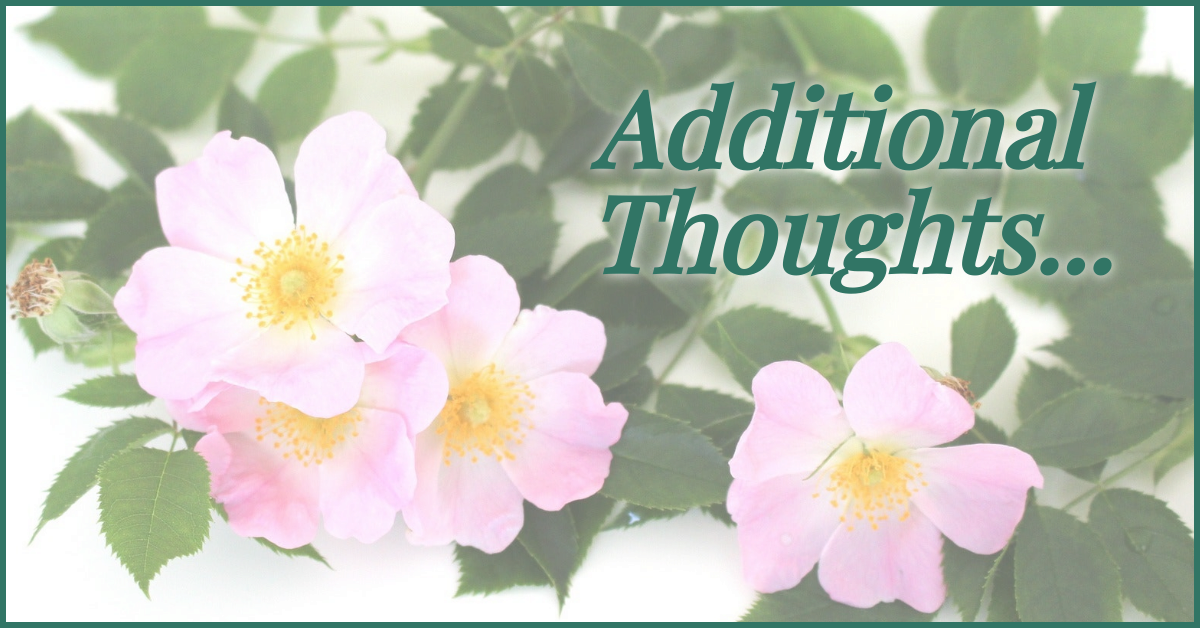
-Your vocabulary and reading-level choices are also a big part of knowing your audience!
-Attention span expectations and what length of story is expected by your audience are also important considerations.
-If you are stuck on deciding who you are writing to, then just picking whoever else is going to read your book when it's done, be that a friend, spouse, or someone else, as your target audience is totally fine.
-After further thought, I want to offer a further, and somewhat counterpoint, answer to the question "is knowing your audience the same as knowing your genre?" as I answered it in the podcast. On the other side of the answer I gave there, not everyone who likes, looks for, and reads the genre of, let’s say, Romantic Urban Fantasy, is going to like the same style choices, tropes, etcetera as another. So knowing your hypothetical single audience member is going to narrow down your target audience to a small subset of those genre readers. Being aware of the ways in which you are narrowing that down will be incredibly helpful in getting your story in front of the exact people who will love it, much more deeply than just genre. Targeting a niche subset of a large genre and marketing well to it is one of the best ways to do well career-wise and build a loyal fanbase.
I hope those additional thought are helpful after listening to or watching the podcast episode!
Episode 1 Overview:
Starting With Audience
"“Who am I telling this story to? Where do I start with the daunting task of self-editing my novel?"
I’m starting something new! Once a week, EVERY week through 2025, I’ll be going over how I, as a developmental editor, recommend going through the self-editing process. Check out the first episode of this Story Savvy series—Starting With Target Audience.
In this series, I, Rebecca of Hart Bound Editing teams with Agnes Wolfe, host and founder of Authors’ Alcove [http://authorsalcove.com], to bring you this comprehensive guide to how to self-edit and make your good story great.
In this episode, we dive into one of the most overlooked but essential parts of storytelling: knowing your audience. Who are you writing for? Why does it matter? And how can defining your target reader transform your rough draft into a story that truly resonates?
Let us know in the comments if there are any questions you hope we cover in future episodes of our Story Savvy series!
See you next week for episode 2: Deciding Your Genre!
The Hart Bound Editing podcast is geared towards fantasy, romance, and historical fiction authors, bringing you insights to help you understand the vital elements of a great story. Check out my
services to learn more about how I can help YOU as well!
Episode 1 Transcript:
Starting with Audience
Rebecca: Hello and welcome to the Hart Bound Editing Podcast. Today I am very excited to announce the start of a weekly story-savvy series where we will tackle the 52 biggest self-editing topics to help you make your good story great as an aspiring author asks me, a developmental editor, all of the questions you've wanted to.
Agnes: Hi, my name is Agnes Wolfe, an aspiring fantasy author who hopes to release her first middle-grade fantasy later this year and also the host and founder of Authors' Alcove. I'm excited to be here for our very first week of the story-savvy series, where we get to dive deep into one of the most important and often overlooked aspects of writing: knowing your audience. And I get to speak with a developmental editor who has helped dozens of authors refine their books. Rebecca?
Rebecca: Hello, like she said, I am the developmental editor behind Hart Bound Editing. I am so excited to do this series with you, and for today I'm excited to go over: defining the target audience for your book—broadly and specifically—how to figure that out if you don't yet know, and why it matters so much both writing and editing your story. By the end of this episode, you'll hopefully feel confident identifying who you are writing for and how that should affect the story you are writing or editing.
So, Agnes, have you ever felt stuck in trying to figure out who your book is really for?
Agnes: Actually, yes, for me, I really wrestled with whether my personal book or my work in progress is middle grade or young adult, and I've gone back and forth several times, but before we go there, I'd like to start out by asking, does knowing my audience even matter before I write or before I start publishing or marketing the book? When should I have that answer of who my audience is?
Rebecca: Great question. So, most of the time, when you hear people talk about audience it's very specifically for the publishing process. It's for marketing and knowing where you're putting it on a shelf if it's physical, or what category you're putting it on in the digital spaces.
So, you can find a lot of information about that, but it also matters, taking it back a step in the editing process, and if you want to go back another step in the drafting, it really, really does, because who you're writing to will have massive effects on the story. If you're telling this story to your grandmother, you're going to tell it very differently than if you're telling it to your best friend, or if you're telling it to your niece or nephew. So, deciding who you're telling the story to is a lot more than knowing who you want to read it.
It's very much also knowing how you're going to tell it because of who your audience is. So, from that perspective, knowing your audience as early as possible is going to give you your best advantage in making sure that you're writing to that specific audience and doing so in a way that will connect with them.
Agnes: So why does the question of audience matter for the actual storytelling part?
Rebecca: Because when, like I said, when you’re telling a story to different people, you're going to tell it differently.
So that matters if you're sitting across a table from them, it matters if you're talking on the phone with them, and it matters when you're writing books. So, knowing your audience ahead of time will affect the choices that you make as you go through the story. It will affect what person, what tense, and what, you know, style you choose to tell the story, that's why that audience matters to the story more than the marketing.
Agnes: So how specific and/or broad should our audience description be? What do we need to know about our target audience, and how specific should we get when we're thinking about our audience?
Rebecca: So, you can go broad, and a lot of genre writers, particularly in romance, which is my niche, will just go broad. They'll say, “hey, I'm writing to, you know, women 30 to 45 in America, whatever” sort of broad spectrum. But that's, again, more on the marketing side.
When you're thinking about the storytelling side, and for this series, specifically the self-editing side, I suggest getting as specific as you possibly can, ideally down to one person. So, if there's someone in your life that you're like, “hey, this person is my target audience,” then that is fantastic.
And you don't have to, you know, create this perfect avatar like you would with your characters. It can be a real person. It can be a hypothetical person. I know plenty of authors who write to their future selves, or a version of themselves that they used to be, that kind of thing.
So going broad for the marketing is a good idea, but getting really, really specific for the drafting and editing is what I recommend.
Agnes: So, I want to know if I am targeting middle-grade fantasy readers or young adult fantasy readers. Like I have war, how specific can I be? It's 87,000 words, which is huge, except that's, like, JK Rowling and I'm not JK Rowling, like is that okay? Cause that seems like a little bit more young adult or is it still middle grade? And then there is a little hint of romance, where is that line cut? I know that's a lot of questions, but just kind of what are the dynamics that make a middle-grade versus a young adult?
Rebecca: So, for this week's topic, we're talking specifically about the audience. And for that, I’m going to ask you, what age reader do you want to read this book? Do you want it to be like, middle grade, which I think is about 8 to 14, or do you want it to be young adult, which is more into the teens?
Agnes: I was thinking like on the higher end of the eight to 14. So like, that is what I was thinking.
Rebecca: So, the thing with middle grade and YA moving into adult, you know, once you go the next step up, is, a lot of that has to do with sort of like the PG rating. So, for middle grade, you really want everything to be sort of accessible to people of that age, but then with YA, you want to then move up and not patronize as much, maybe. And that's when you can really start introducing more romance and more sort of difficult topics, but you still want to do so in a sort of child friendly way.
So, for knowing your audience, I would say just sort of pick an age, like, again, this is about knowing your audience. So, pick one age—not a range, not a concept, but an actual, let's say 12-year-old that you know—and talk to them and see sort of like where they are, what are they wanting to read? What do you mention and they go, “Oh, I don't want to read that.” So that's part of why knowing your really specific audience is so helpful is it can answer questions like this.
Because if your specific 12-year-old that you're writing to wants big battles, and a little bit of romance, and all that kind of stuff, that's great. That's, what you're going to write, that's who you're writing to. But there are other 12-year-olds who aren't there who don't want that kind of stuff, who really want to be reading, you know, Harry Potter 1 kind of content.
So that's a big part of why knowing your specific audience is going to be helpful. So, when you're making this choice, bear that in mind because you cannot please everyone. That's a big part of all of this is you cannot please everyone, and you are not going to be able to write a book that is just right for every 12-year-old, or every 12-year-old’s parents.
So, pick your 12-year-old that you're writing to, and write to them, or 15, and making that call, it's going to tell you whether it's middle grade or YA.
Agnes: You just brought up that writing for middle-grade parents. So, my next question is if my primary reader is middle-grade fantasy readers, who else am I targeting? Like, I'm assuming parents because I know myself, when with my preteen, I wanted to know what my kids were reading. How much should I think about that while writing, marketing, and publishing?
Rebecca: So, 12-year-olds, or the whole middle grade section are probably not picking any of their own books. This might be different if they have like a school library, but even then, there's an adult who curated that collection.
So, I definitely recommend that if you're writing middle grade, or YA to a lesser extent, you have to market to parents, and librarians, and teachers as much as anyone else. And I know middle-grade authors who almost exclusively write to catch the attention and hook the interest of the adults in these children's lives by putting in all kinds of sort of educational material and talking about how this book, you know, subtly talks about whatever topic they want to sort of bring to the readers. So, once you get into YA, you've got a bit more space because I know by the time I was 14, 15, 16, I was going to the library by myself and getting whatever I wanted to out of the YA fantasy section.
But yeah, marketing specifically to adults is definitely something to bear in mind when you're thinking about what you're writing and how you're going to present it.
Agnes: So how should we actually be using these answers to directly check or change our stories as we are writing them? Should it impact what I write as far as my narrative tone, or my style, or the complexity of what I write?
Rebecca: So, starting at the beginning with drafting and planning and all of that kind of thing, having that single audience member, which Story Grid calls SAM, so forgive me if I accidentally just say that offhand, knowing your single audience member will help you decide what to describe and what to not bother describing. It's going to help you decide what characters to include. It's going to help you decide pretty much all of the major considerations for a book.
And we'll get to genre in the next two episodes in this series, but for right now, again, imagine the difference of telling a story about something that happened to you in your life to your grandmother versus a child. You're going to tell your grandmother and this child and your best friend different details. You’re not going to tell your grandmother things that you tell your best friend, and you're going to tell the kid things in a very different way than you would tell your grandmother.
So, knowing that audience member at the drafting and planning stage is going to help you know what to include, what to do. It's really a great sort of magnetic north for deciding where your story is going.
Moving forward into the self-editing stage, which is what we're mostly talking about here, it's a lot of the same thing but more in the curation mindset. So, rather than deciding what to put in or what not to put in, you're now looking at what to add or what to scrap. So, again, knowing your single audience member and imagining them sitting across the table from you and you're telling them the story that you're writing is going to be helpful in knowing, “okay, well, this paragraph goes way off into details about this thing that my audience, that person, is not going to care about, so I'm going to take that out.”
And then, you know, a chapter later, maybe you'll hit a point where you realize that you skipped over something that you know about, that you can take for granted, but your audience member, that person right there, is going to need those details because they don't have the same life experience as you do. And then obviously going forward into the marketing, knowing your audience is going to have a lot of effect on how you write your blurb, your cover, your title, all that kind of thing.
Agnes: So, I know, like right now, I feel pretty safe with the dragon idea because it's pretty much kind of a trend right now, but how much should we pay attention to like, current trends or current events, and how should we allow it to impact our understanding of our target audience?
Rebecca: So I would say you should consider that some but it should never be the core of why you're writing or what you're writing.
And primarily, especially with like middle grade and YA, so with your genres, one of the biggest considerations there is that different generations, especially now that we're getting into the 21st century and technology is moving forward so fast, are going to have very different experiences of their different life phases than generations before.
Let's say I'm comparing my upbringing, so we'll say middle-grade age is about 8 to 14. Comparing my life in those years to even my grandmothers is a wild difference for what we were being taught, for what we were doing with our lives, for how we were seeing our futures, what topics were being discussed in the household, and what topics we were processing within ourselves.
So, considering that specifically for your genres about what are kids of those ages stressed about right now? What are they excited about right now? What are they talking about with their friends? And those sort of considerations are relevant.
Now, it's a little bit less relevant if you're fully in the fantasy space where there is not technology and there are not schools as we have them today, but understanding the mindset, things still count for an awful lot, especially when you're writing for a younger audience.
Agnes: I know, that actually really resonates with me as a beta reader because I do know that when I'm reading middle-grade and young adult books, if I can tell, like I cringe when I can tell how old the author is.
Rebecca: Exactly.
Agnes: I’m like “ew, you didn’t do that…” So, I definitely can relate to that. And yeah. But I wanted to go on to the next question.
What happens when you don't know your audience? For example, somebody who doesn't realize how great these kids are now. They're witty. They're compassionate. They're intelligent. They have a freedom of speech that we—at least I did not have growing up. And I think that you're a little younger than me, so you probably had a little bit more freedom of speech than I did, as far as like what you said in front of parents, what you said in front of other places.
But what happens if you don't know your audience, and what are some of the biggest mistakes you have seen as a developmental editor when they don't have quite a clear idea of who their audience is?
Rebecca: That is a great question. And I think you've already touched on sort of the major theme that I see in that, which is that the people who are most likely to pick up the book and read it are going to do so and not feel like the book was meant for them. So, if it's middle grade, it could be a case of talking down to their audience and being patronizing.
And like you were saying, just not understanding that their reader is this like real vibrant, complex person. And expanding into more adult genres, it would be like writing a romance novel that doesn't have a ‘happily ever after’ or ‘happily for now.’ That is your audience. You are writing to someone who likes reading romance, and people who like reading romance read it for that happy ending.
So, knowing your audience will help you talk to them in a way they will appreciate, and give them what they're looking for, which we'll go over in much more depth next week with the genre topic.
So, the biggest mistake of not knowing your audience is making them feel like the book wasn't written to them, or for them, and they're going to not finish it or not speak highly of it when they're done because you were actually telling the story to someone else. You had some other audience than the one you meant to be writing to in mind when you were writing it. Often, you're just trying to write it to yourself rather than your actual audience, and it won't connect, and it won't be something that they recommend. So, knowing your audience will help you get to where when that person or that kind of person reads the story, they feel like you are talking to them, and that counts for so much in liking a book, recommending a book, all of those things.
Agnes: I know when I first started writing my book, I was not sure whether it was middle grade, young adult, and so I just started writing.
What should we do if we are stuck on figuring out our target audience? Should we just set that question aside and move forward and just get the book written? Or let's say if a listener gets through this episode and still doesn't know who their target audience is. What should we do?
Rebecca: So, you don't have to know your audience to start writing the book, and if that's the reason that you're not getting started or not finishing the book, absolutely, completely ignore it. The primary goal is always to get the book written. But that being said, having anyone in mind is going to be better than having no one in mind.
So if you're writing middle grade, you don't have to pick your perfect 10-year-old, 12-year-old, whatever it is. Just pick any child that you know, any kid, and just be like, okay, in my head I’m writing this to them. Or if you're writing romance, pick anyone you know who likes romance, and in your head, just have them sitting across the table from you as this hypothetical audience because it’s a lot easier to change who your single audience member is later than try to invent one from scratch.
So, if you're stuck on this, if you're not certain, just lower the stakes and stop trying to figure out perfect and just pick someone. And again, this doesn't have to be a real person, I just find that is easiest for people to grasp, but having any idea, one sentence like, “hey, I'm writing to a 12-year-old-girl,” is a mile better than not having that sentence in your head while you're writing.
Agnes: I know we do need to wrap up, but I did want to ask one last question. What's the difference between knowing my audience and knowing my genre? If I know my audience, does that dictate what my genre is?
Rebecca: So, there is a lot of overlap, which we've already seen talking about this in this episode, but not all romance readers are women, and not all women are romance readers, if that makes sense. So, if you know that you're writing YA, that is genre to some extent, and we'll get into content versus marketing genres next week, but it doesn't actually tell you much about the story that's being told. It tells you who the audience is.
So, genre gets much deeper into what is the content of the story. Is there going to be romance? Is there going to be action? Is there going to be mystery? Whereas your audience is just an individual that might be into that. So when you're marketing to YA, what you're doing is saying, here's this big group of people that I'm marketing to, but I'm going to announce my genre so that the people within that group who want fantasy, who want dragons, who want a little bit of romance, will then see that and pick it for themselves.
So, knowing your audience is knowing who might want your book. Knowing your genre is knowing how to tell that whole group of people, “hey, this is what I've got, so anyone in this group who wants it, come to me.” Does that make sense?
Agnes: Yes, it does.
Thank you very much. It has helped me so much. I really do appreciate it.
Rebecca: Of course. Knowing your audience is such a key piece of crafting a story that truly resonates. Next week, we'll take it a step further into nailing genres and subgenres, which I've mentioned earlier in this episode.
And now that we've identified who we're writing for, we'll explore what they're looking for and how we can tell them that we have the perfect book for them, like I was just saying.
For now, I really want to thank our listeners. If you could help us out by liking and subscribing to the Hart Bound Editing Podcast and the Authors' Alcove Podcast, we would be very grateful, and you can find lots more content for fantasy authors and readers there beyond this series.
Agnes: And I can't wait to talk about genre. Really looking forward to it. See you then.
Rebecca: Bye.
Thank you so much for listening to the Hart Bound Editing Podcast. I look forward to bringing you more content to help you make a good story great so it can change lives and change your world. Follow along to hear more or visit my website linked in the description to learn how I can help you and your story to flourish. See you next time!
